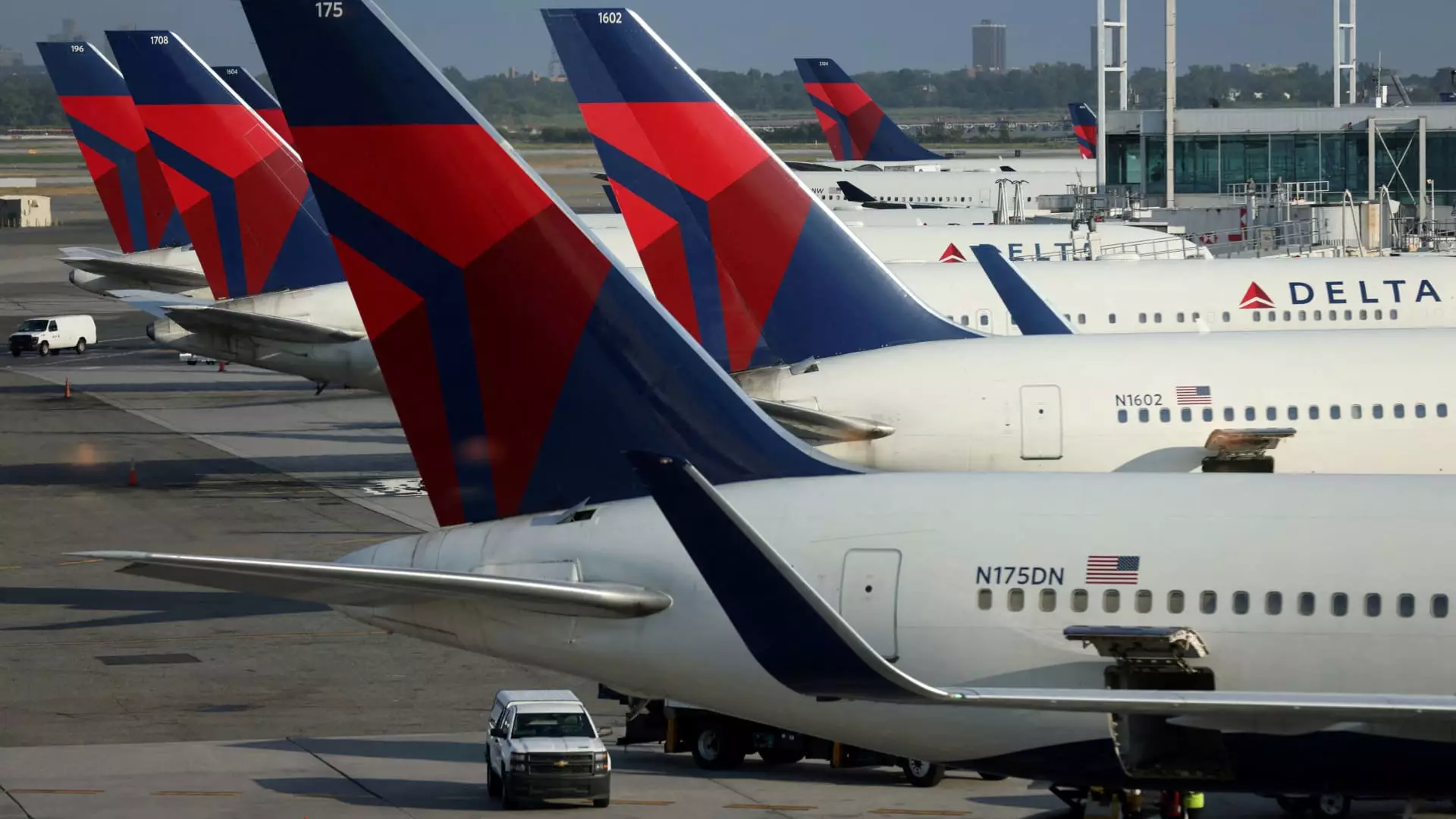In a significant turn of events, Delta Air Lines has initiated legal proceedings against cybersecurity firm CrowdStrike, centering on allegations of breach of contract and negligence stemming from a catastrophic software outage in July. This incident, which reportedly rendered millions of computers inoperable, culminated in an astonishing 7,000 flight cancellations, a logistical nightmare for the airline that prides itself on operational excellence. The implications of this outage extended far beyond mere inconvenience; Delta estimates that the fallout resulted in approximately $380 million in lost revenue, compounded by an additional $170 million in expenses.
At the heart of Delta’s lawsuit is a problematic software update linked to CrowdStrike’s Falcon security application, which purportedly affected computers running Microsoft’s Windows operating system. Delta’s complaint alleges that this flawed update was not adequately tested prior to being deployed, a lapse that the airline believes could have been circumvented through better practices. Delta’s legal team, spearheaded by renowned attorney David Boies, is demanding reparations not just for lost revenue, but also for litigation costs and punitive damages against CrowdStrike, framing the case as a glaring instance of corporate negligence.
CrowdStrike’s representative has yet to furnish a public comment regarding these serious allegations. However, CEO George Kurtz has publicly apologized for the chaos unleashed by the software issues, asserting that the company is committed to refining its protocols to avert future incidents. This raised questions about the efficacy of current cybersecurity measures and the potential ripple effects that such high-profile failures could have on the industry at large. In an unprecedented move post-outage, CrowdStrike slashed its full-year financial outlook, acknowledging the ripple effects of this service disruption.
Delta’s struggle for recovery was notably contrasted with the performance of other airlines, which managed to bounce back more swiftly in the aftermath of the incident. This disparity raises further concerns about Delta’s infrastructure and crisis management strategies. The assertion by Delta that CrowdStrike’s software inadvertently created unauthorized vulnerabilities in Windows poses serious questions about the interplay between cybersecurity and operational integrity for large organizations. Furthermore, Delta’s insistence that it had disabled automatic updates is critical, pointing to a failure in communication or operational safeguards within CrowdStrike’s deployment process.
As the lawsuit progresses, the airline’s CEO, Ed Bastian, has emphasized the need for comprehensive compensation, arguing that the chaos spurred by the outage deserves redress in a significant way. Delta’s pursuit of accountability represents not only a bid for financial recovery but also a broader call to action for cybersecurity firms to uphold high standards in software development and testing. The outcome of this legal battle could have far-reaching consequences, potentially reshaping industry norms surrounding cybersecurity practices and accountability.
The Delta-CrowdStrike affair serves as a cautionary tale in the ever-evolving landscape of technology and security. As companies increasingly rely on sophisticated software solutions to maintain operational efficiency, the risks associated with software failures become ever more consequential. Ultimately, this lawsuit underscores the urgent need for rigorous testing and accountability across all levels of technology deployment, an expectation that both businesses and consumers will increasingly demand in the future.

